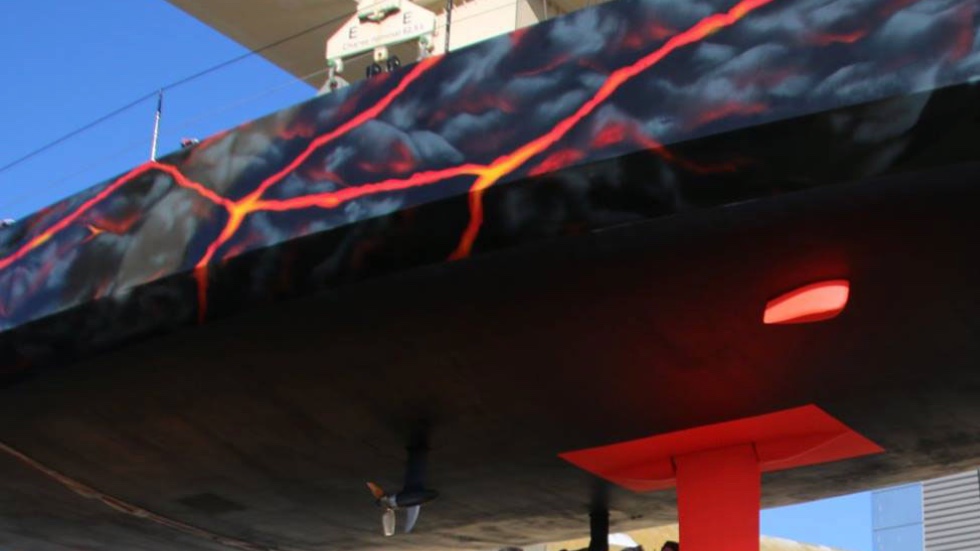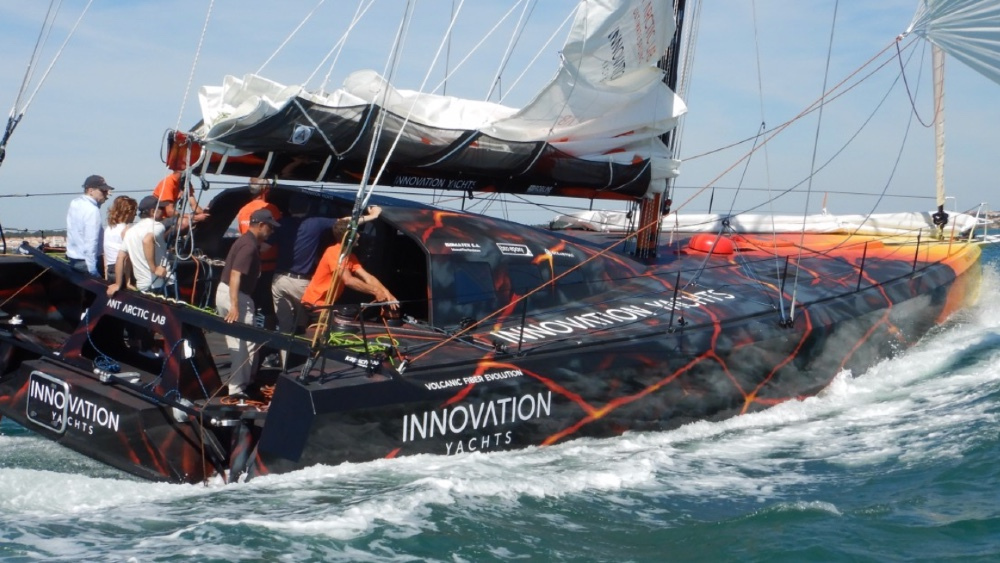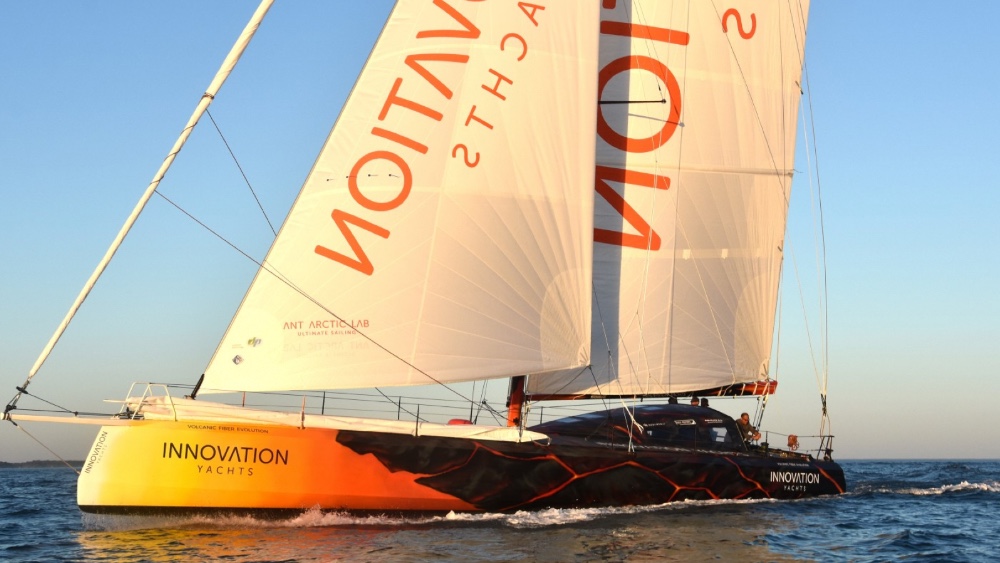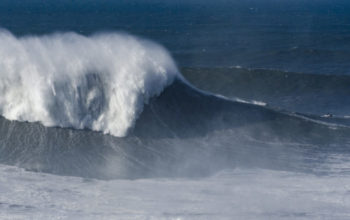Boat Built From Volcanic Lava? This Sailing Yacht Was Designed for the World’s Toughest Voyage

Created by a voyager who has sailed the globe multiple times, the Open60AAL is lighter and stronger than traditional carbon-fiber yachts.
Written content from JULIA ZALTZMAN
This summer, Austrian sailor Norbert Sedlacek is embarking on an adventure that no seafarer has ever accomplished—circumnavigating the world alone on a grueling 38,000-mile voyage without outside support. The seven-month challenge includes all five of the world’s oceans and the notorious Northwest Passage. Sedlacek’s doing it on a boat he built himself out of volcanic fiber, with a balsa-wood core.
Setting out in July, Sedlacek expects to encounter storms of hurricane strength, monstrous waves, icebergs and extreme temperatures, not to mention persistent loneliness and exhaustion. Oh, and he’ll only sleep in 15-minute spurts for the seven-month ordeal.
The seasoned sailor remains unphased by the gruesome voyage, confident in the performance and durability of his volcanic-fiber boat, the Open60AAL. Designed by Sedlacek’s company, Innovation Yachts, the volcanic material being used is called Filava.

“Filava is an exciting material because it’s an upgrade from carbon fiber,” Sedlacek told Robb Report. “Some of its properties are similar to carbon but it has a higher density, is much cheaper and highly resistant to natural elements like sun damage and humidity.” Filava is a roving—a long and narrow bundle of fiber—made from enhanced volcanic rock filaments formed via a batch melt, which hot lava is then added to and vitrified by cooling. It is manufactured in sheets like fiberglass.

The Open60AAL will also be lighter than a similar-sized carbon-fiber sailing vessel. The 60-footer, which has been in production since 2016, is stable, light and fast enough to sail through the Northwest Passage, even with little wind.
Sedlacek is no novice to open-ocean sailing. He completed his first sail around the world in 1998, followed by a circumnavigation of Antarctica in 2000. He then sailed the famed Vendée Globe. Read more from Robb
Read “Race to build the fastest sailboat”





